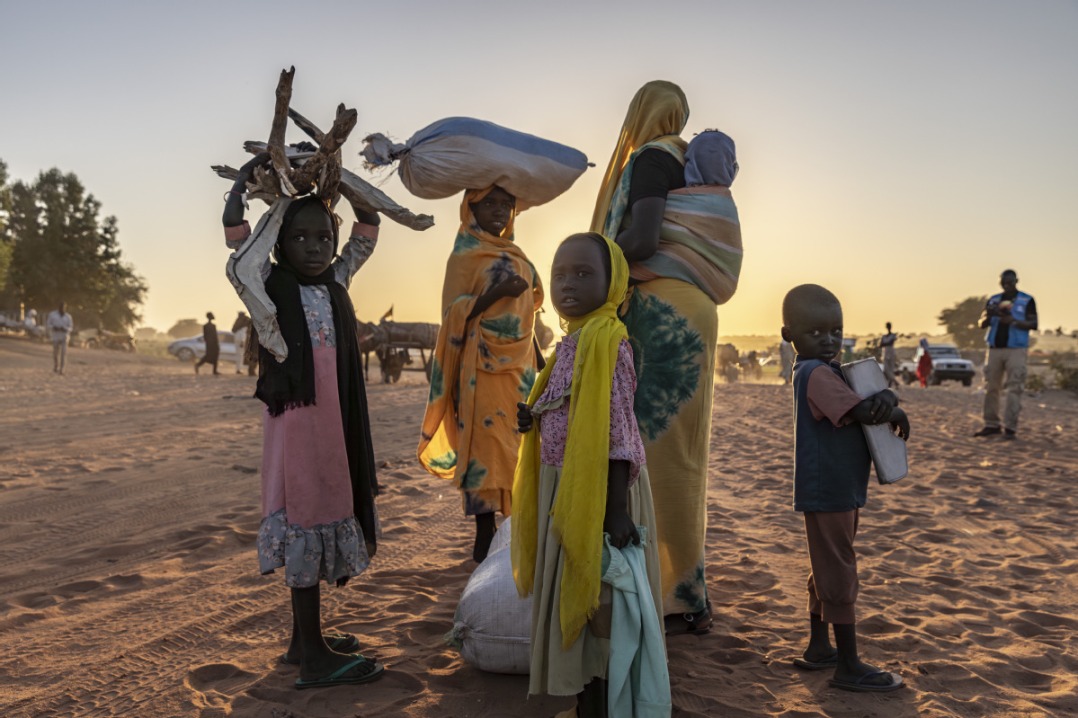Swahili making inroads in Africa

When the Southern African Development Community adopted Swahili as its fourth official language in August, some people questioned the practicality of the decision. After all, English, Portuguese and French were already lubricating the wheels of the intergovernmental organization tasked with promoting economic and social integration within the region.
Analysts believe that the 16 members of the group opted to add Swahili in the hope that it would bring peoples of the region closer together, enhancing their cooperation in the political, economic, cultural and social spheres.
And, they believe, that decision is likely to have a snowball effect as the language is adopted by other political and economic groupings elsewhere in Africa, making Swahili the lingua franca across the continent. It would provide fresh impetus to efforts at furthering regional integration.
"South Africa, as a member state, has a huge responsibility ahead in ensuring that this indigenous language is taken up more broadly, and also that it has a function as a language for business, as well as for use in other sectors, including when dealing with the environment," said David Maahlamela, the chair of the Pan South African Language Board.
In preparation for offering the language as an optional subject in schools by 2020, South Africa has hit the ground running. Elijah Mhlanga, a spokesman of South Africa's Department of Basic Education, said that a pilot project is at an advanced stage.
The Council of Education Ministers in the country overwhelmingly agreed to incrementally introduce Swahili in schools.
"There is a high level of enthusiasm about this. We will start teaching Swahili as soon as all technical issues are resolved," Mhlanga said.
"It's a only matter of time. We are an African country and it is the most spoken indigenous language in the continent. Therefore, it is about time that we have the language in our schools, considering our participation in the African Union."
A 'good idea'
Smanaga Sylvester Dube, a teacher at Basa Tutorial Institute in Johannesburg, said: "It is a good idea to teach Swahili in the country since it is one of our African languages. It would help our children to communicate easily with others in the continent. I am also willing to learn the language."
Others believe that the elevation of Swahili would enable Africa to speak with one voice. "It is time for Africans to communicate in one voice during international forums such as the African Union heads of state forums or at the UN General Assembly," said Nonhlanhla Mhlanga, of the The White House College, in the country's biggest city.
Under South Africa's education policy, students can learn additional languages alongside English or Afrikaans. The aim is to create a truly multilingual and more inclusive society.
Elijah Mhlanga said there was a growing body of research on African languages that confirmed the orthographies and linguistic structures of African languages are unique.
He said most bilingual learners in South Africa learn African tongues, which have different linguistic structures from English and this impacts the language transitioning process within schools.
Peter Mose, a postdoctoral fellow at Rhodes University in South Africa, said Swahili most likely originated from the East African coast as a result of intermarriage between Bantu-speaking communities and Arab traders.
He cited research by Beverly Coleman for this supposition in an analytical paper. "It would therefore be very easy for many Africans to learn," he said. "That's because it shares Bantu origins with languages like isiXhosa, isi-Zulu and isiNdebele. Bantu languages have long developed by borrowing the pronunciation and spelling of English words."
About 8 percent of Africans speak Swahili. It is widely spoken in Kenya, Tanzania, Uganda and Rwanda. A sizable population in Burundi, the Democratic Republic of Congo, Mozambique, Malawi and Namibia can communicate in the language.
































